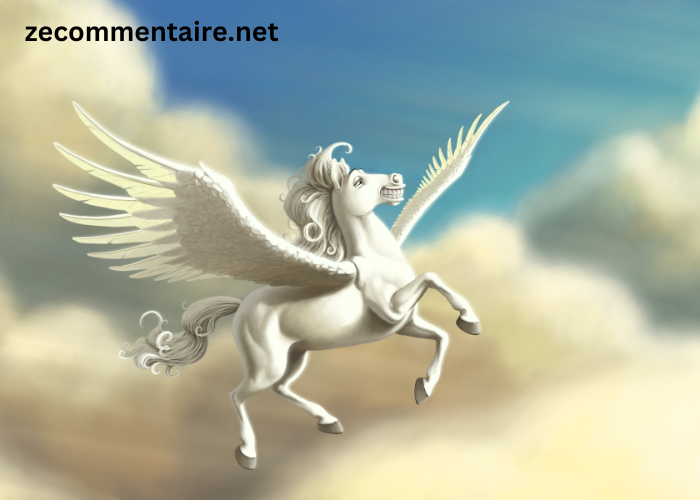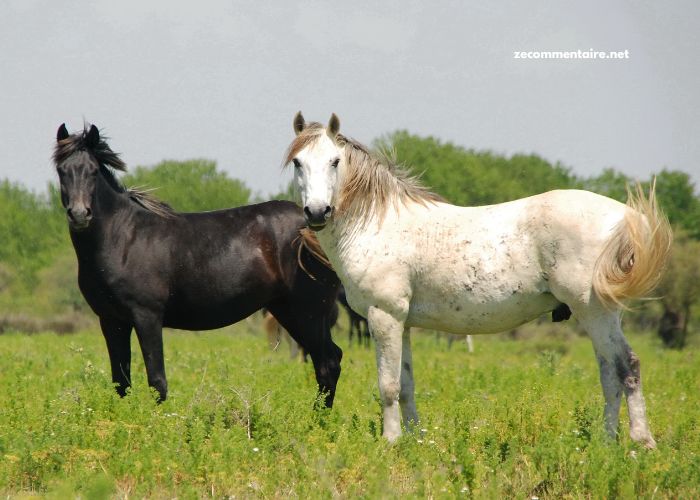Horses have long held a special place in human society, embodying strength, freedom, and grace. Throughout history, they have been essential companions in war and work, while also capturing our imagination in myths and cultural traditions. The significance of horses extends beyond their practical uses, as they have also played vital roles in shaping our myths, history, and cultural identities. Explore a wide range of courses on casa, from interior design to architecture, and enhance your knowledge in the field of home design and construction.
Horses in Mythology
In mythology, horses often symbolize power and nobility. Numerous cultures have legends that feature magnificent equines with extraordinary abilities. The Greek mythology features Pegasus, the winged horse born from the blood of Medusa, who is associated with divine inspiration and heroism. Bellerophon, a mortal hero, famously tamed Pegasus and rode him in his quest to defeat the monstrous Chimera.
Norse mythology presents Sleipnir, the eight-legged horse ridden by Odin, the chief of the gods. Sleipnir is considered the best of all horses, capable of traveling through the realms of gods, men, and the dead with unparalleled speed. This mythical steed underscores the horse’s role as a bridge between worlds, a carrier of divine power.
In Hindu mythology, the horse figures prominently in the form of Uchchaihshravas, a seven-headed horse that emerged from the churning of the ocean of milk. This celestial horse is seen as a symbol of power, splendor, and victory, often associated with the king of gods, Indra.
Historical Significance
Beyond myth, horses have played crucial roles in shaping human history. From ancient civilizations to modern times, horses have been indispensable in warfare, agriculture, and transportation.
Warfare
The use of horses in warfare transformed military strategies and outcomes. The Hittites, around 1600 BCE, were among the first to use chariots effectively in battle, a practice that soon spread to other civilizations. The mobility and speed provided by horses allowed armies to cover vast distances quickly, execute swift attacks, and retreat when necessary.
The Mongol Empire, under the leadership of Genghis Khan, leveraged the prowess of their cavalry to create one of the largest empires in history. Mongol horsemen were known for their exceptional riding skills and their ability to shoot arrows with deadly accuracy while on horseback, making them formidable opponents in battle.
Agriculture and Transportation
In agriculture, horses have been vital in plowing fields and transporting goods. The development of horse-drawn plows and carts enabled more efficient farming practices and the movement of goods over long distances. This contributed significantly to economic growth and the expansion of trade networks.
The domestication of horses around 4000 BCE in the steppes of Central Asia marked a turning point in human civilization. The ability to travel farther and faster facilitated the exchange of ideas, cultures, and technologies, fostering interconnectedness among distant communities.
Cultural Impact
Horses have not only influenced our practical lives but have also left an indelible mark on our cultures. They are celebrated in art, literature, and rituals across the globe.
Art and Literature
Throughout history, horses have been depicted in various forms of art. Ancient cave paintings, such as those found in Lascaux, France, illustrate the deep connection early humans had with these majestic animals. In literature, horses often symbolize freedom, beauty, and companionship. Anna Sewell’s “Black Beauty” is a poignant portrayal of a horse’s life and the bond between humans and animals.
Rituals and Festivals
Horses feature prominently in numerous cultural rituals and festivals. The Spanish tradition of “La Feria del Caballo” celebrates the horse’s role in Andalusian culture with parades, shows, and competitions. In India, the Marwari horses are an integral part of the traditional Rajput weddings and religious ceremonies, symbolizing valor and prestige.
In the American West, the cowboy culture and rodeos highlight the historical and cultural importance of horses. These events celebrate the skills of horse riding, roping, and cattle herding, keeping the legacy of the cowboy and their trusty steeds alive.
Conclusion
Horses have been more than mere animals in human history; they have been partners, symbols, and legends. From their roles in mythology to their impact on historical events and cultural practices, horses continue to inspire awe and admiration. As we reflect on the rich tapestry of human civilization, the legend of the horse gallops prominently across our collective memory, reminding us of the powerful bond between humans and these remarkable creatures.




